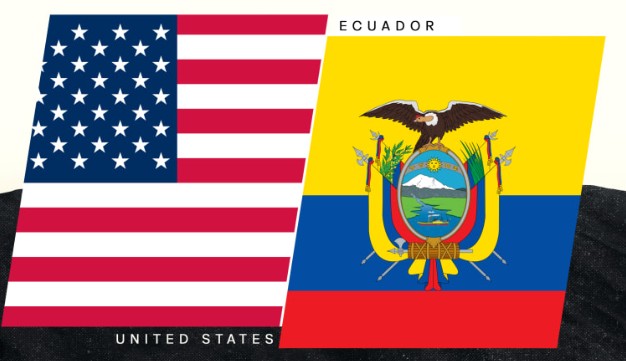Shared Vision and Strategic Alignment
President Donald J. Trump and President Daniel Noboa have affirmed a shared vision for bilateral growth rooted in democratic values, private enterprise, and a rules-based commercial environment. The newly announced Framework for an Agreement on Reciprocal Trade between the United States and Ecuador builds on decades of economic engagement most notably the U.S.–Ecuador Trade and Investment Council Agreement, first signed in 1990 and updated in 2020.
This framework is designed to expand market access, reduce trade friction, and align both nations on economic and national security priorities.
Tariff Commitments and Market Access
Ecuador will reduce or eliminate tariffs across key U.S. export sectors, including:
- Machinery and industrial equipment
- Health and pharmaceutical products
- ICT goods and chemicals
- Motor vehicles and select agricultural products
Additionally, Ecuador will implement tariff-rate quotas for other agricultural goods. In parallel, the United States will remove reciprocal tariffs on qualifying Ecuadorian exports specifically those not grown, mined, or produced in sufficient quantities domestically.
Strategic Implication: U.S. exporters must prepare tariff exposure models and audit HS codes to ensure defensibility and maximize benefit under the new tariff regime.
Tackling Non-Tariff Barriers
The framework includes a joint commitment to address Ecuador’s non-tariff barriers in priority sectors. Ecuador will reform import licensing and facility registration systems for food and agricultural products, ensuring transparency and predictability. Market access will no longer be restricted based on the use of common cheese and meat terms.
Compliance Note: U.S. agri-food exporters should prepare origin documentation and labeling protocols aligned with Ecuador’s revised standards.
Trade Facilitation Enhancements
Ecuador will advance trade facilitation by:
- Ending pre-shipment inspection mandates
- Establishing contingency plans for its Single Window system
- Expanding its Authorized Economic Operator (AEO) program to include express delivery carriers within three months
These measures will streamline customs procedures and reduce operational delays for U.S. exporters.
Intellectual Property Modernization
Ecuador has committed to:
- Ensuring transparency and fairness in geographical indication enforcement
- Addressing issues flagged in the USTR’s 2025 Special 301 Report
- Finalizing commitments on international IP treaties
Advisory: U.S. firms should monitor IP enforcement trends and prepare defensible documentation for branded goods and digital assets.
Labor and Environmental Standards
Ecuador will strengthen labor law enforcement and prohibit imports produced by forced or compulsory labor. On the environmental front, Ecuador will:
- Improve forest sector governance
- Combat illegal logging and wildlife trade
- Enforce fisheries-related measures
- Promote resource efficiency
- Fully implement WTO obligations on fisheries subsidies
Risk Management Tip: U.S. importers must update supplier due diligence protocols and prepare for enhanced scrutiny across labor and environmental dimensions.
Services and Digital Trade Commitments
Ecuador will remove discriminatory barriers to services and advertising. In digital trade, Ecuador will:
- Refrain from imposing discriminatory digital service taxes
- Support a permanent WTO moratorium on customs duties for electronic transmissions
Strategic Opportunity: U.S. digital service providers gain a more predictable regulatory environment. Compliance teams should prepare audit trails for cross-border data flows and digital transactions.
Economic and National Security Cooperation
Both countries will deepen cooperation on:
- Supply chain resilience
- Investment security
- Export controls
- Duty evasion
- Countering non-market policies
This alignment strengthens the bilateral foundation for secure, transparent, and innovation-driven trade.
Implementation and Forward Coordination
The United States and Ecuador are finalizing the Agreement and preparing for domestic ratification. Ongoing coordination will occur through the U.S.–Ecuador Trade and Investment Council, ensuring continuous review and adaptation.
Conclusion
This framework is a strategic upgrade to U.S.–Ecuador trade relations one that blends tariff liberalization with regulatory modernization and national security alignment. For U.S. stakeholders, it offers a rare opportunity to expand market access while reducing compliance friction.
Peacock Tariff Consulting recommends immediate action:
- Audit HS codes and simulate tariff exposure
- Prepare stakeholder-facing documentation for agri-food, digital, and industrial sectors
- Monitor IP, labor, and environmental enforcement trends
- Build scalable workflows for defensible trade strategy
We stand ready to support clients with serialized advisories, exportable content, and audit-ready deliverables tailored to this evolving framework.
#USEcuadorTrade #TradeCompliance #TariffStrategy #DigitalTrade #AgriFoodExports #IPEnforcement #SupplyChainResilience #LaborStandards #EnvironmentalGovernance #PeacockTariffConsulting

